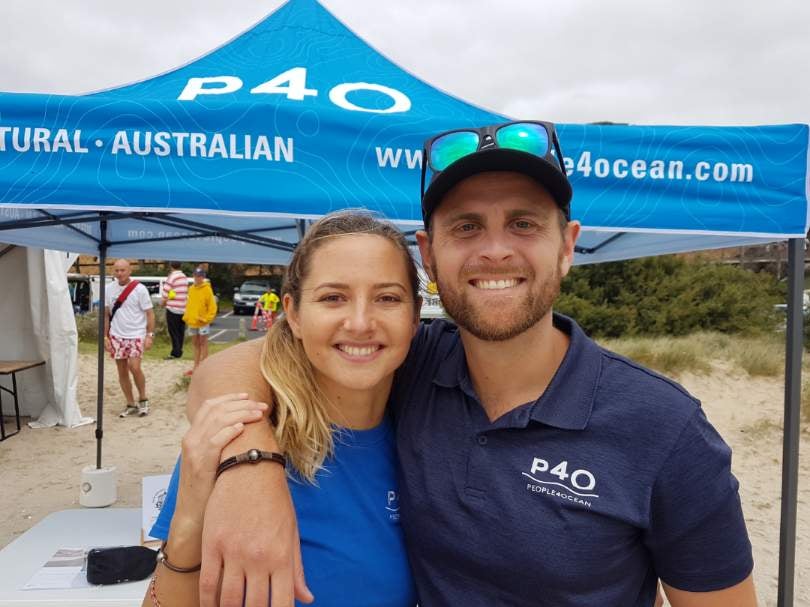The eco-friendly sunscreen makers helping to save ocean life
The couple behind Australian firm People4Ocean Sun Care are on a mission to protect coral reefs with their toxic-free sunblock. Andy Martin meets them

The weird thing is I had already slapped on some SPF 50 sunblock (not one of theirs) before I spoke to Louise and Austin Laing in Melbourne. “It’s the best anti-ageing product you can put on your skin,” says Louise. “You should do it every day.” “But have you checked the back of the bottle?” asks Austin. “It’s what we call the ‘conscious consumer’ – when you turn the bottle around and look at the contents. I bet it has oxybenzone in it. They nearly all do. It’s toxic to aquatic life.” Before speaking to the Laings, founders of People4Ocean (P4O) Sun Care, I must have been an unconscious consumer, because I hadn’t realised my (fairly expensive) sunblock could be toxic to anything – and I hadn’t checked the back of the bottle either. But they have come up with a product where you won’t even need to check the ingredients – they’re all ethical, safe and won’t poison the dolphins and turtles – or you.
I’ve got to admit, I also had no idea, before talking to them, that sunscreen typically works by converting UV rays into infra-red. Which sounds OK except for two things. One is you are liable to get hot skin. And the other is that the sunscreen is absorbed into your epidermis and from there into your bloodstream. So whatever you put on your skin eventually ends up getting pumped around every organ in your body. “It’s been shown,” says Austin, “that it’s detectable in your urine within twenty minutes of putting it on your skin.” The disturbing truth is that certain types of sunscreen can actually be more carcinogenic than the sun it’s protecting you from (and they’re already not recommended for pregnant or breastfeeding women or children under two).
Read More:
Subscribe to Independent Premium to bookmark this article
Want to bookmark your favourite articles and stories to read or reference later? Start your Independent Premium subscription today.
Join our commenting forum
Join thought-provoking conversations, follow other Independent readers and see their replies